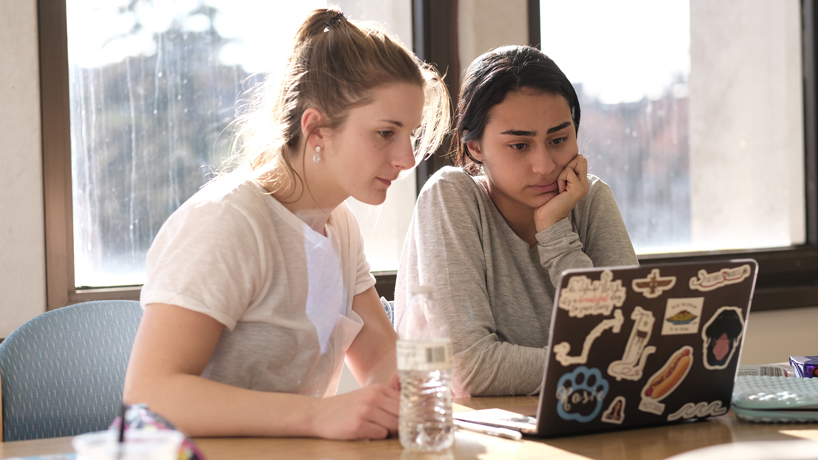
Students can begin enrolling in a new Master of Science in Applied Behavior Analysis program after approval by the Missouri Department of Higher Education and Workforce Development. The program was built upon the success of an existing certification program in the College of Education. (Photo by August Jennewein)
The need for Board Certified Behavior Analysts is higher than ever.
According to reports from the Behavior Analyst Certification Board, annual demand for professionals trained in applied behavior analysis – a set of principles that serve as a basis for studying and managing behaviors through individualized interventions – has grown annually since 2010.
It doesn’t seem to be slowing down, either. Analysis done by Burning Glass Technologies estimates that up to 20,000 new BCBA jobs will be created in Missouri, Illinois and Kansas in the coming decade.
To meet this vital workforce need in the region, the University of Missouri–St. Louis has launched a Master of Science in Applied Behavior Analysis.
The program, recently approved by the Missouri Department of Higher Education and Workforce Development, will be housed in the College of Education’s Department of Educator Preparation and Leadership, and students can begin enrolling this semester.
“Today, there is a shortage of a behavior analysts in the whole country and, in fact, the whole world,” ABA Graduate Program Director and Assistant Professor Andresa De Souza said. “There is a big need for these professionals in our community and in our region. I know most clinics operating here have a waitlist because they don’t have enough people to provide services.”
Students in the master’s program will learn how to asses social and behavioral deficits in children, adolescents and adults, particularly those with developmental disorders, and then use the principles of behavior analysis to create plans to mitigate those deficits and challenges. With this training, graduates will be able to work in a variety of professional settings including schools, social service agencies, hospitals and private practices.
The 39-credit, online-based degree program was built upon the success of an existing ABA Certificate Program in the College of Education.
In Missouri, certification requires a master’s degree, and in the past, many students who already had a master’s came to UMSL to complete their ABA certification coursework. However, students who had not obtained a graduate degree had to complete a master’s in special education and an additional 18-21 credits of ABA coursework.
The new degree significantly streamlines the certification process for students.
“In the process of doing their ABA coursework, they also gain their master’s degree,” De Souza said. “It was a way to really make it easier, less cumbersome and more economic for students.”
Fully online classes also increase the program’s flexibility and make it more accessible to people in rural and remote areas.
De Souza noted that ABA has been shown to be one of the most effective scientific techniques to care for children with autism, challenging behavior and developmental delays – especially in schools. As awareness about these disorders has grown, demand has increased for BCBAs.
She said the promising labor market combined with the program’s distinguished professors will provide students with a number of quality opportunities after graduation.
“There is a lot of prestige in our program,” she said. “I think employers really like students coming from our program. It’s not a problem for students to get jobs – the jobs that they want.”














